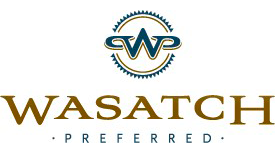Employee dishonesty that leads to some type of theft or embezzlement, be that of company funds, assets or vital company data, can be a serious threat to your bottom line.
There are ways you can mitigate the risk by sticking to proven hiring principles, and putting in place procedures and safeguards to reduce the likelihood of employee theft. Your strategy should also include securing employee dishonesty insurance coverage, just in case.
Small and mid-sized businesses suffer disproportionate losses from employee dishonesty because they typically have limited resources to devote to detecting fraud or theft, according to the Association of Certified Fraud Examiners. It recommends the following:
Hire wisely — Conduct pre-employment background checks of job applicants that include the following:
- Criminal history for crimes involving violence, theft and fraud.
- Civil history collections, restraining orders or fraud lawsuits.
- Driver’s license check for numerous or serious violations.
- Education verification of any degrees the applicant claims.
- Calling former employers to verify the positions the applicant held, length of employment, and reasons for leaving.
Checks and balances — No employee should be responsible for both recording and processing transactions. Separate responsibility for these functions.
Control access — Restrict access to physical and financial assets and information to authorized employees only.
Authorization controls — Develop policies to determine how financial transactions are initiated, authorized, recorded and reviewed.
Keep staff posted — Educate employees on your policies and procedures related to fraud, the internal controls you have set in place, as well as your company’s ethics policy and how you will mete out discipline for violations. Have all of your employees sign a form verifying that they have read and understand your policy.
Hold an annual training session on fraud and theft prevention.
Anonymous reporting — To ensure that your staff can feel protected if they become aware of employee theft or other dishonest behavior, provide for a reporting system for employees, vendors and customers to anonymously report any violations of policies and procedures.
Take reports seriously and investigate thoroughly.
Audits — You should already be conducting regular audits. But you should also conduct unannounced audits, that give employees no time to cover their tracks if they’ve been stealing.
By conducting audits, you also convey to your staff that you are serious about fraud prevention. Audits can also kill any temptation on the part of an employee to engage in theft by making them uncomfortable about engaging in fraudulent behavior.
Probe reports — Investigate every incident and report, no matter how small. A thorough and prompt investigation of policy and procedure violations, allegations of fraud, or warning signs of fraud will give you the facts you need to make informed decisions and reduce potential losses.
Analyze bank statements — Review bank statements prior to passing them to the bookkeeper.
Expense procedures — Have a strict documentation policy for expense reports and audit the reports prior to payment.
Check inventories — Conduct physical inventories frequently and reconcile the inventory to sales.
Check rules — Limit the number of check signatories to a few trusted staff, and keep blank checks in a secure location.
Lock the cash — Allow a limited number of employees the ability to disburse petty cash. Require a receipt for all petty cash disbursements.
Anti-theft devices — Buy security and fraud-resistant products such as special cash drawers that limit the ability to pilfer, tamper-resistant bank deposit bags, and clear-view employee bags that allow you to see the contents, to avoid staff slipping company assets into their purses or bags.
Insurance
Finally, you can consider purchasing employee dishonesty insurance. A typical policy includes:
- Coverage for a loss involving money, securities and other property committed by the fraudulent act of any employee.
- Coverage of a client’s property. Your business office package policy may not provide coverage if the theft is of your client’s funds, or if it is by a third party (non-employee).
- Coverage for workers while working off-premises at a client.
- Automatic credit-card forgery coverage.
- Automatic Employee Retirement Income Security Act bond coverage is included on most policies, eliminating the need to maintain a stand-alone ERISA bond.
